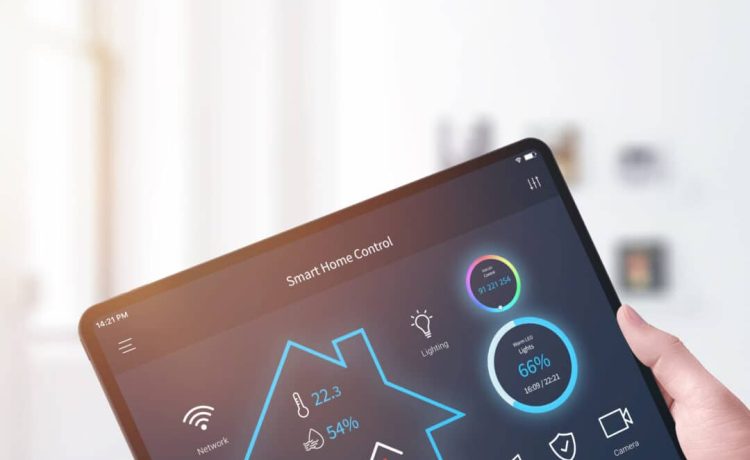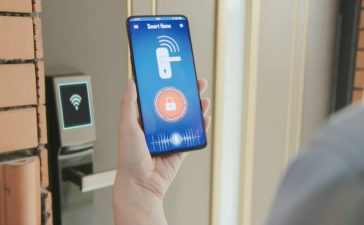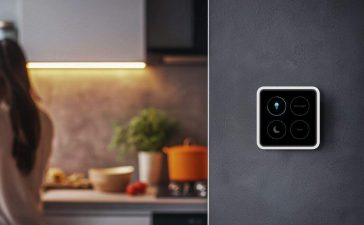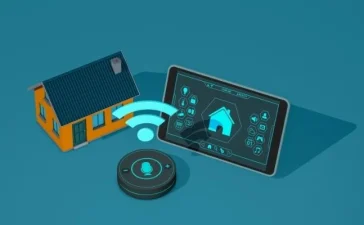In recent years, the concept of a smart home has evolved from a futuristic dream to a tangible reality. What was once considered a luxury is now becoming more mainstream, as homes are increasingly equipped with interconnected devices designed to simplify daily life, improve energy efficiency, and enhance overall comfort. However, despite the widespread adoption of smart home technology, many homeowners still fail to incorporate some key elements that can elevate their living spaces to the next level. If you’re looking to truly optimize your home’s tech capabilities, it’s worth considering whether you’re missing any of these essential gadgets and systems.
1. Smart Lighting
While many people are familiar with smart thermostats and voice-controlled assistants, the concept of smart lighting is often overlooked. Smart lighting systems offer more than just the convenience of adjusting the brightness from your phone or with voice commands. These systems can help reduce energy consumption, enhance the ambiance of your home, and even improve security.
For example, with the right smart lighting, you can program your lights to adjust based on time of day, creating a more natural lighting experience that mimics the sun’s movements. This can have both aesthetic and health benefits, especially in the winter months when natural light is scarce. Additionally, some smart lights come with motion sensors that can turn lights on or off when they detect movement, making it easier to conserve energy. Furthermore, integrating smart lighting with other devices, such as your security system, can simulate occupancy when you’re away, potentially deterring burglars.
2. Smart Security System
A smart security system is an essential component of any modern home. While traditional security systems are still in use, they often fall short when it comes to providing real-time updates or remote access. With smart security solutions, you can monitor your property from anywhere in the world, and get instant notifications about potential security breaches, from a door being left ajar to motion detected on your property.
Smart security cameras, doorbell cameras, and motion detectors are the cornerstones of a robust home security system. Many of these devices offer HD video quality, night vision, two-way audio, and cloud storage options, allowing you to keep track of any activity even when you’re not at home. A smart security system can also integrate with other smart home devices, such as lights and locks, creating a seamless security solution that can be controlled from your smartphone or voice assistant.
3. Smart Thermostat
While it’s one of the most well-known smart home devices, it’s still worth emphasizing the importance of a smart thermostat. This device allows homeowners to take control of their home’s climate more efficiently than ever before. A smart thermostat can learn your schedule and adjust the temperature accordingly, ensuring you’re never heating or cooling an empty house.
Beyond comfort, these devices can result in significant savings on energy bills. Many models have energy-saving features that help reduce heating and cooling costs by learning your usage patterns. Additionally, some smart thermostats can monitor your home’s air quality and alert you to issues like high humidity levels, making it easier to maintain a healthier living environment.
4. Smart Plugs and Outlets
If you’re looking for an easy and inexpensive way to upgrade your home’s functionality, consider adding smart plugs and outlets to your space. These devices offer a simple way to control traditional appliances like lamps, fans, coffee makers, or even home entertainment systems. By plugging these devices into a smart plug, you can control them remotely via your phone or voice assistant, setting schedules or turning them on and off from anywhere.
For example, you could have your coffee machine start brewing when your alarm goes off, or set your lamps to gradually brighten in the morning to simulate a sunrise. Many smart plugs also come with energy monitoring features, allowing you to track the energy usage of various appliances, which can help you make more informed decisions about your home’s energy consumption.
5. Smart Speakers and Voice Assistants
At the heart of many smart homes is the voice assistant. Whether it’s Amazon’s Alexa, Google Assistant, or Apple’s Siri, voice-controlled devices have revolutionized the way we interact with our home technology. These smart speakers can control various aspects of your home, from music playback to managing your smart home devices.
However, their utility goes beyond simple commands. With integrated AI, voice assistants can set reminders, provide real-time weather updates, control your entertainment system, and even make online purchases. More importantly, they can act as a hub for other smart devices, allowing you to control your thermostat, lights, locks, and security system through simple voice commands.
6. Smart Locks
Traditional door locks are increasingly becoming a thing of the past. With the growing focus on convenience and security, smart locks are an essential part of the modern home. These locks offer enhanced features like keyless entry, remote control, and temporary access codes for guests. They can be integrated with other smart devices like voice assistants and security systems, allowing you to lock or unlock your door from anywhere, using your smartphone or voice command.
What makes smart locks especially valuable is their ability to increase security. Many models feature automatic locking, meaning the door locks itself when you leave, ensuring you never have to worry about forgetting to lock up. Some smart locks also have built-in cameras or sensors to alert you if someone is tampering with the door, adding another layer of protection.
7. Smart Kitchen Gadgets
The kitchen is often the heart of the home, and with the rise of smart kitchen gadgets, it’s becoming an even more efficient and enjoyable space to spend time in. From smart refrigerators that track the contents of your fridge to smart ovens that allow you to control cooking temperatures remotely, the kitchen has seen its fair share of technological advancements.
Smart appliances can streamline meal planning, reduce food waste, and even help with cooking. For example, some smart fridges can notify you when you’re running low on a particular ingredient or help you order groceries. Smart ovens, on the other hand, can automatically adjust cooking temperatures based on the recipe you select, ensuring your meal is cooked to perfection every time.
8. Smart Home Hubs
For those with an extensive range of smart devices, a home hub can provide much-needed central control. A smart home hub acts as the brain of your smart home, connecting all your devices and allowing them to communicate seamlessly with one another. With a smart hub, you can manage multiple devices from one central app or interface, making it easier to control everything from lights to locks to security cameras.
A home hub can also help to manage compatibility issues between devices from different brands. Many hubs come with built-in voice assistants, such as Alexa or Google Assistant, which further simplify the management of your home’s tech ecosystem.
Conclusion
As smart home technology continues to advance, there’s no doubt that our homes are becoming more intuitive, efficient, and connected than ever before. However, to truly take full advantage of these advancements, it’s crucial to ensure that your home is equipped with the right tech essentials. From smart lighting and security systems to kitchen gadgets and smart hubs, each of these devices plays a vital role in creating a truly integrated smart home. If your smart home is missing any of these key components, now may be the perfect time to upgrade and unlock the full potential of your living space.









